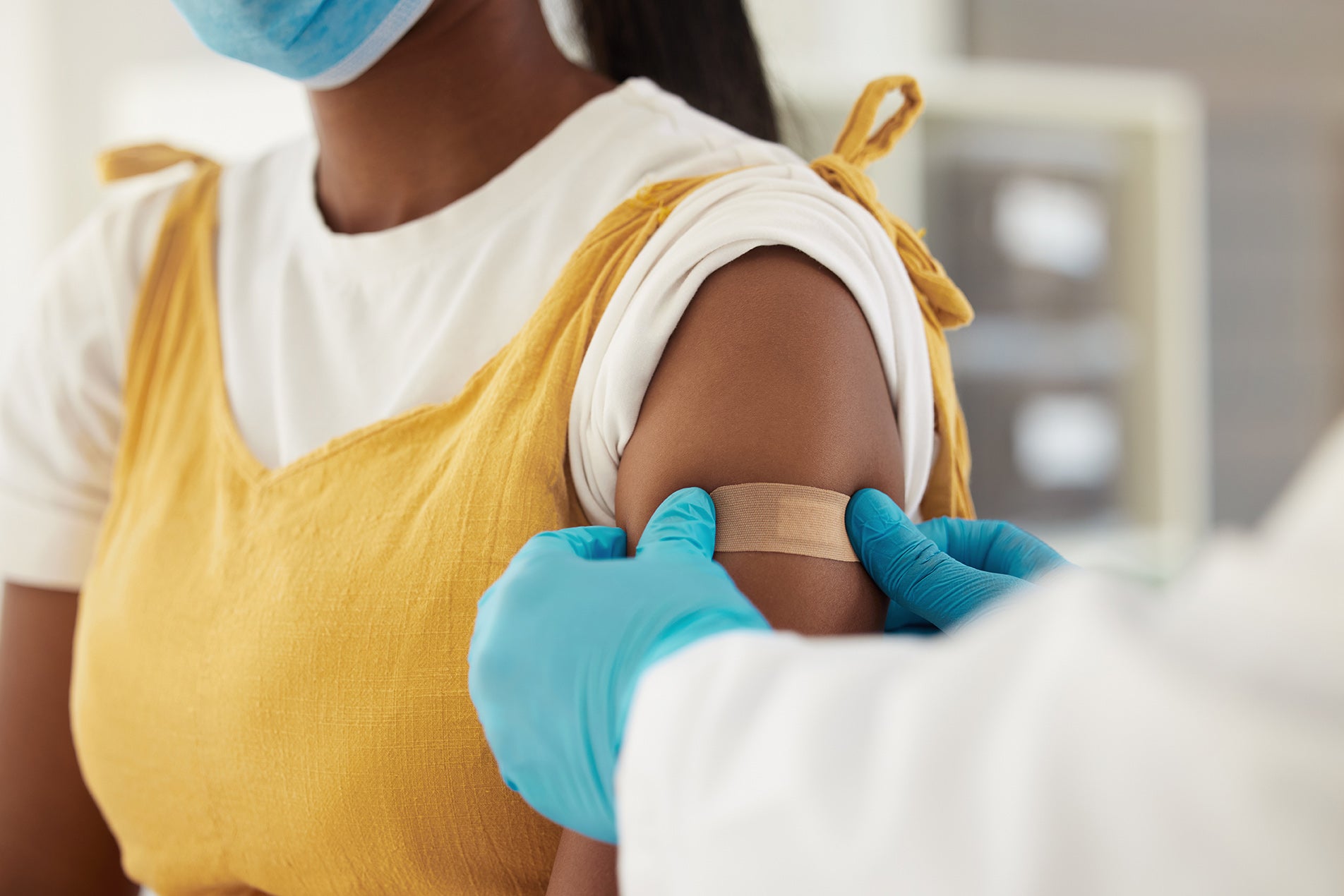Stay protected. Stay prepared.
Vaccination Services

Stay protected. Stay prepared.
Vaccination Services
At MVP Pharmacy, we make staying up to date on your vaccines easy, convenient, and stress-free. Whether you’re gearing up for flu season, planning a trip, or simply doing your part to stay healthy—our licensed pharmacists are here to help.
Vaccines offered at MVP
Yellow fever vaccine is recommended for people who are 9 months old or older and who are traveling to or living in areas at risk for yellow fever virus in Africa and South America.
The vaccine is a live, weakened form of the virus. For most people, a single dose of yellow fever vaccine provides long-lasting protection, and a booster dose of the vaccine is not needed. However, travelers going to areas with ongoing outbreaks may consider getting a booster dose of yellow fever vaccine if it has been 10 years or more since they were last vaccinated. Certain countries might require you to get the vaccine; visit Travelers' Health for information on specific country requirements.
Talk to your healthcare provider to determine if you need a yellow fever vaccination or a booster shot before your trip to an area at risk for yellow fever.
The Centers for Disease Control and Prevention recommends an annual flu vaccination for nearly everyone 6 months of age and older, and our pharmacies are able to vaccinate patients as young as 3 years old in some states. Get your flu shot to help reduce your risk of serious complications from the flu, including hospitalization.
The updated 2024-2025 COVID-19 vaccine more closely targets currently circulating variants. The Centers for Disease Control and Prevention (CDC) recommends that everyone ages 6 months and older get an updated COVID-19 vaccine* to help protect against serious illness from COVID-19. Eligible patients can receive an updated COVID-19 vaccine at least two months after their last dose of the 2023-2024 vaccine, and some patients may be eligible for an additional dose as recommend by the CDC.
Let’s get you protected—quickly and conveniently

Let’s get you protected—quickly and conveniently
Book your vaccine appointment today or stop by our pharmacy to learn more.
Vaccine information
A vaccine is a medical substance that helps protect the body from specific diseases by training the immune system to recognize and fight harmful pathogens like viruses or bacteria. It typically contains a weakened, inactivated, or partial form of the disease-causing organism, which is enough to stimulate an immune response without causing the actual illness.
Once the immune system responds, it creates a memory of the pathogen, allowing the body to recognize and combat it more effectively if exposed in the future. Vaccines are a key tool in preventing infectious diseases and have played a major role in controlling or eliminating illnesses such as measles, polio, and COVID-19.
Vaccines work by teaching your immune system how to recognize and fight off specific germs before they can make you seriously sick. They do this by introducing a harmless part of the virus or bacteria into your body—this could be a weakened or killed version of the germ, or just a piece of it, like a protein.
Your immune system sees this as an invader and starts building a defense by making antibodies and training special immune cells. If you’re ever exposed to the real disease later on, your immune system remembers it and can respond quickly, stopping the infection before it spreads or becomes severe. This way, vaccines help prevent illness without making you go through the actual disease.
Vaccines are important because they protect individuals and communities from serious, sometimes deadly diseases. By preparing the immune system to recognize and fight infections, vaccines help prevent illness before it happens. This not only keeps people healthy but also reduces the spread of diseases to others—especially those who can't be vaccinated, like newborns or people with weakened immune systems.
Vaccines have played a crucial role in controlling, and in some cases nearly eliminating, diseases like polio, measles, and smallpox. Overall, they are one of the most effective tools in public health for saving lives and keeping populations safe.
The most common reactions to vaccines are minor and include:
- redness and swelling where the shot was given
- fever
- soreness at the site where the shot was given
In rare cases, vaccines can trigger a serious problem, like severe allergic reactions. If your child has a history of allergies to food or medicine, or has had a problem with a vaccine before, tell the doctor before your child gets any vaccines. Every year, millions of kids are safely vaccinated and very few have serious side effects.
Vaccines are not always 100% effective because everyone is different. Each person’s immune system responds differently to vaccinations, much like how we all respond differently to medications. Most have a similar outcome, but not every medication is effective for everyone.
However, vaccines are still one of the most effective weapons we have against disease. They work in 85% to 99% of cases, greatly reducing your risk of serious illness (particularly when more people are vaccinated) and giving diseases fewer chances to take hold. ² Even when not 100% effective, the vaccine can still help lessen the impact and side effects of the disease if you are exposed.
The difference between vaccines and immunization lies in what they refer to:
vaccine is the actual substance that is given—usually as a shot—that contains a harmless part or version of a disease-causing germ. It's what stimulates the body’s immune response.
is the process that happens after receiving a vaccine. It’s when your body builds protection (immunity) against the disease.

